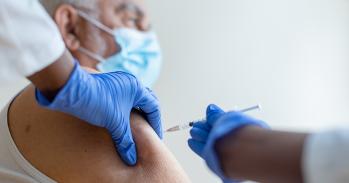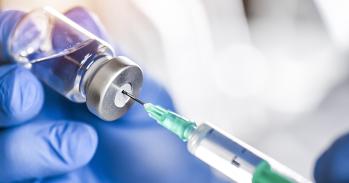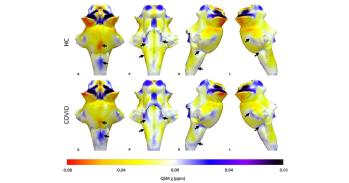
The Cambridge COVID-19 Testing Centre, set up in April in response to the urgent need to boost the UK’s testing capabilities, has processed two million tests.
The Cambridge COVID-19 Testing Centre, set up in April in response to the urgent need to boost the UK’s testing capabilities, has processed two million tests.
This is a tremendous achievement and testament to the hard work of the team involved in setting up and running this facility
Andy Neely
The facility was set up in a collaboration between the University of Cambridge and two major pharmaceutical partners, AstraZeneca and GSK. Soon after its launch, the facility was brought into the Government’s national diagnostic lab network, the largest in British history.
The University has been able to share its world-leading research expertise with the innovation and robotics know-how from its two pharmaceutical partners to create a new, high-throughput centre. The facility is based at the Anne McLaren Building on the Cambridge Biomedical Campus.
Hundreds of volunteers were recruited and trained from across the three organisations to get the Centre up and running, including researchers from the University. Each volunteer stepped forward at a time of national crisis with their own reasons for wanting to contribute to the COVID-19 testing programme.
Innovative robotics and automation were installed and an entire supply chain was sourced and implemented to ensure the testing facility was both resilient and highly effective. All of this was done in just five weeks, an operation which would usually take six months.
Since it began operating, the facility has processed more than 2 million tests.
“This is a tremendous achievement and testament to the hard work of the team involved in setting up and running this facility,” said Professor Andy Neely, Pro-Vice-Chancellor for Enterprise and Business Relations at the University of Cambridge. “I would like to thank everyone who has played a part in making the Centre a huge success and enabling it to play an important role in helping keep Cambridgeshire and the UK safe.”

The text in this work is licensed under a Creative Commons Attribution 4.0 International License. Images, including our videos, are Copyright ©University of Cambridge and licensors/contributors as identified. All rights reserved. We make our image and video content available in a number of ways – as here, on our main website under its Terms and conditions, and on a range of channels including social media that permit your use and sharing of our content under their respective Terms.




